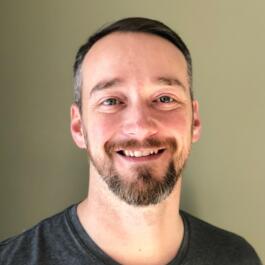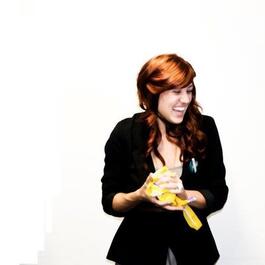
Episode #63: Building Serverless with Begin with Paul Chin, Jr.
About Paul Chin, Jr. Paul Chin Jr. works in Developer Relations at Begin, a tool that helps everyone build apps fast with cloud native services and open source tools. He previously worked as a Cloud Solutions Architect at Cloudreach, and is passionate about open source, serverless architecture, and making technology more accessible for everyone. Paul’s a lifetime resident of Virginia Beach, VA, and has a special place in his heart for Nicolas Cage, who tends to make an appearance in his presentations and projects. Feel free to talk to him about anything related to tech, food, or business.Twitter: twitter.com/paulchinjr757 Dev Group: meetup.com/757dev/Begin: begin.comBegin Training Resources: learn.begin.comArchitect framework: arc.codes Watch this episode on YouTube: https://youtu.be/L8DkEqgVEBY Transcript Jeremy: Hi, everyone. I'm Jeremy Daly and this is Serverless Chats. Today I'm chatting with Paul Chin Jr. Hey, Paul, thanks for joining me. Paul: Hey, Jeremy. Thank you so much. I'm really excited. Jeremy: So you are, or you do Developer Relations at Begin. So I'd love it if you could tell the listeners a little bit about your background and what Begin does. Paul: Sure. Well, my name is Paul Chin Jr. At Begin, we are a service to make deploying serverless applications just super simple. Really straightforward. We give the developers everything they need from local development all the way through the CI/CD pipeline, and then we put their app onto live AWS Infra. For Developer Relations, my job is to help developers understand this technology, onboard them and get good feedback from them so we can make the service even better. Jeremy: Now, I noticed you have a sloth hiding behind you. Is that- Paul: Oh, yeah. Jeremy: ... something that basically says, "This is how it used to be. And now serverless is so much faster."? Paul: Yeah. I feel like sometimes we've got to give ourselves permission to slow down a little bit. It's a reminder that says, "It's going to be okay." And even if I step away, it's going to be okay. Jeremy: Perfect. Paul: Yeah. Jeremy: Well, so I'd love to talk to you about Begin. And I want to get into a whole bunch of things with that. But maybe we can begin, I'm sorry, that was a really bad joke. But maybe we can begin by just talking about your path into technology. Because I know it's a little bit non traditional. And this is one of those themes I think, that we see a lot with serverless, is a lot of people from non traditional backgrounds go into serverless. So what was your path like and then how did that lead you into serverless? Paul: Oh, man. This question is always great and I love sharing the story because it's a good example of just where technology has taken us now. I don't have a CS degree. And I was never doing anything remotely technical. I was just always a big business nerd. And I've had several businesses in the past. And then one day I decided, "I should learn how the software stuff works. I use the internet a lot. So I should figure out how it works. Because it's going to help me, no matter what I do." And so I decided to undertake, like, "I'm going to learn how to program in JavaScript and make web applications and do all that stuff." And so I started that and I had a wonderful local community of developers that took me in and mentored me. And from there, I just wanted to find the fastest, quickest, easiest way to build a form or to build a CRUD app. And that always led me to cloud native services. I didn't know it at the time, but not setting up my tooling and not setting up a server, all these things that I would read about, I was like," I don't want to do any of this." And now I'd find a new service. And it would just do it for me. And I was like, "Great, I'll just use this." And they always had a free tier and they were always easy to sign up, you just give them an email or a GitHub or something. And then that's how I continued on this path of, quote, now "cloud native development" to use all the buzzwords. And it was just a very organic thing for me to continue to learn and build and put stuff out. Because none of the infrastructure was in my way. None of the arcana of what it is to be a web developer was in my way. Jeremy: Yeah, no, I think- Paul: So that's how I got to it. Jeremy: Yeah, no, I think that's a common story, this idea of, you look at everything you would need to do in order to build out a full on web application and you're just like, "Yeah, you know what? Maybe I'll take up gardening," or something like that, because it just seems like an easier path. But I agree, I mean, I don't have as traditional as a background or as traditional of background as a CS degree. And some of those things I actually did a split degree and random stuff. But I ran a web development company for years and years and years. And mostly, I taught myself how to program just by reading books and using the internet and things like that. And I went down the deep path of learning how servers work and how networking works and all that kind of stuff. Which I'm glad I did. But for somebody new it just seems like if unless you're getting specifically into that business, if you just want to learn to build applications and develop in the cloud, then that traditional experience I think, is not necessary anymore. Paul: Yeah. And it changes so fast. Jeremy: Right. Paul: I got started right when the MEAN stack was a thing. Everybody wanted to build the Angular, Node, Express thing. And I recently, as part of my job at Begin is to take these example apps and make them better and make them more accessible. And so I recently just took one of the first sites I ever made. And went to the Free Code Camp resource that I had used five years ago, when I first built it. And I go, "Man, none of this is actually deploying anywhere." And I was trying to remember, "Well, how did I actually deploy this thing? I must have done it on Heroku or something." But there was no instructions for it. Jeremy: Right. Paul: And I remember, that was a friction point. I was like, "Okay, I've gone through this tutorial. I've built this thing. It works locally, on localhost only. Now what?" And what Begin does is say every time you push to GitHub, your stuff is live. It's just automatic. It's just a given. We think that it's just table stakes now like, while you're building and prototyping, and developing, you should be able to see it on live resources. And so I've updated the Express app. I even threw the entire Express server inside of a single Lambda, and it works just as a proof of concept. But splitting them off and doing more event architecture with it is the next level. And it's just as straightforward. Because if you're pushing to GitHub, you can push to the cloud. That's it. Jeremy: Right. Yeah. No, that's awesome. So let's talk about Begin. Because I think that's one of those things where if you think about serverless development, and you're thinking of SAM,...
From "Serverless Chats"





Comments
Add comment Feedback